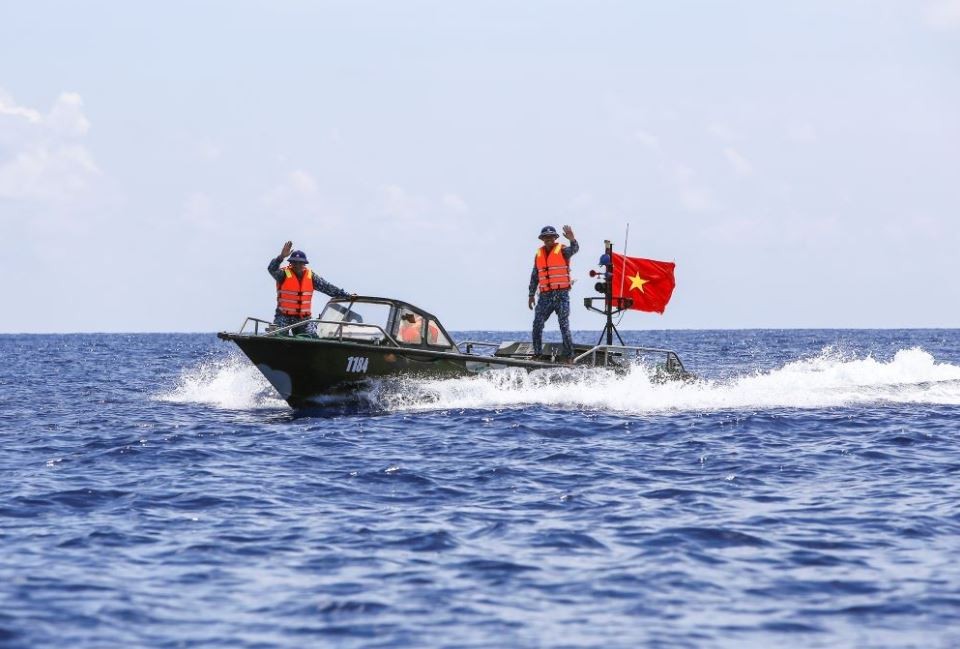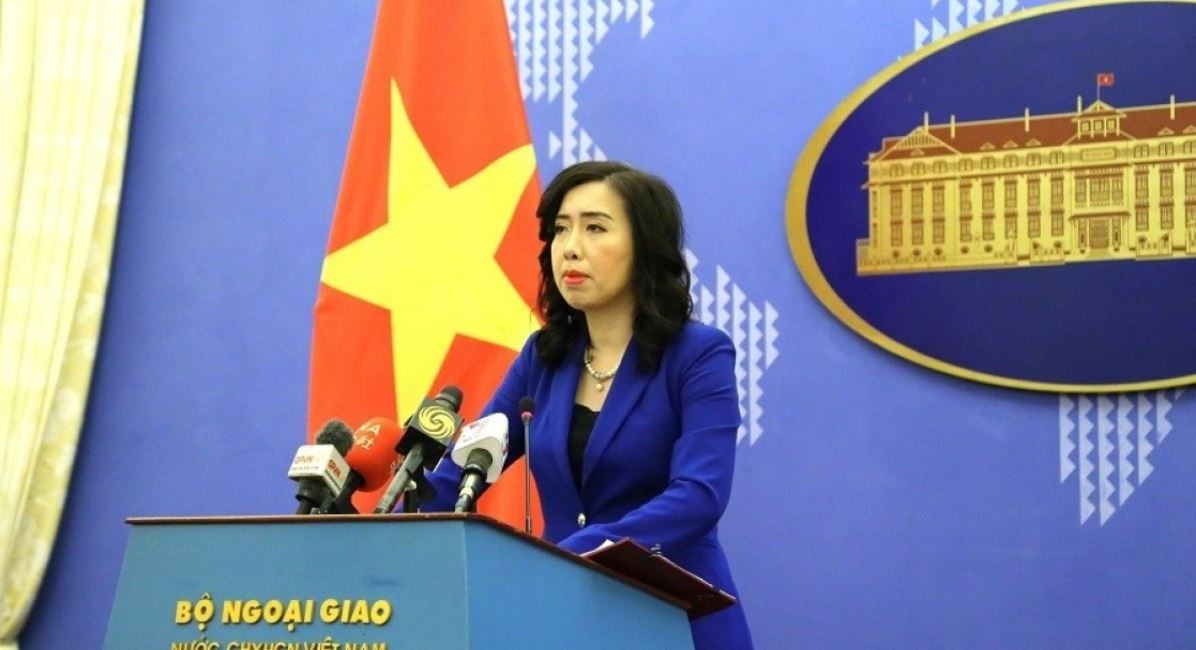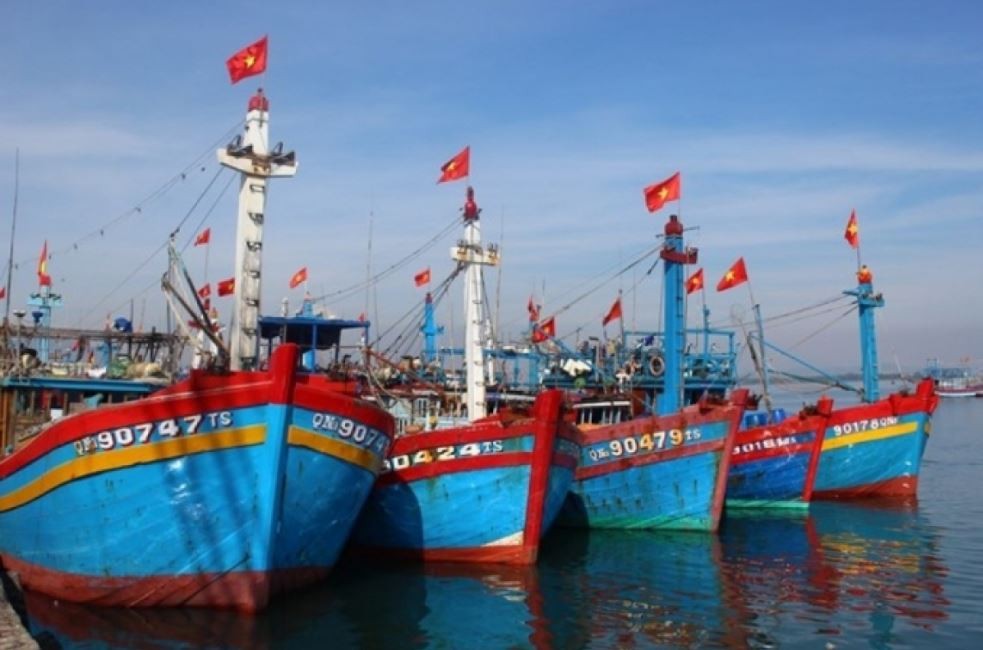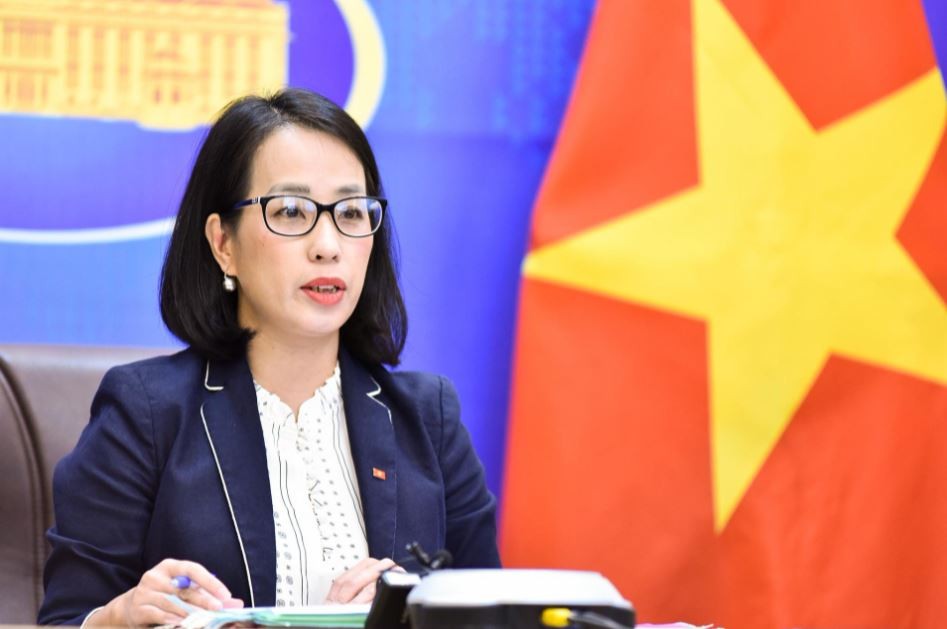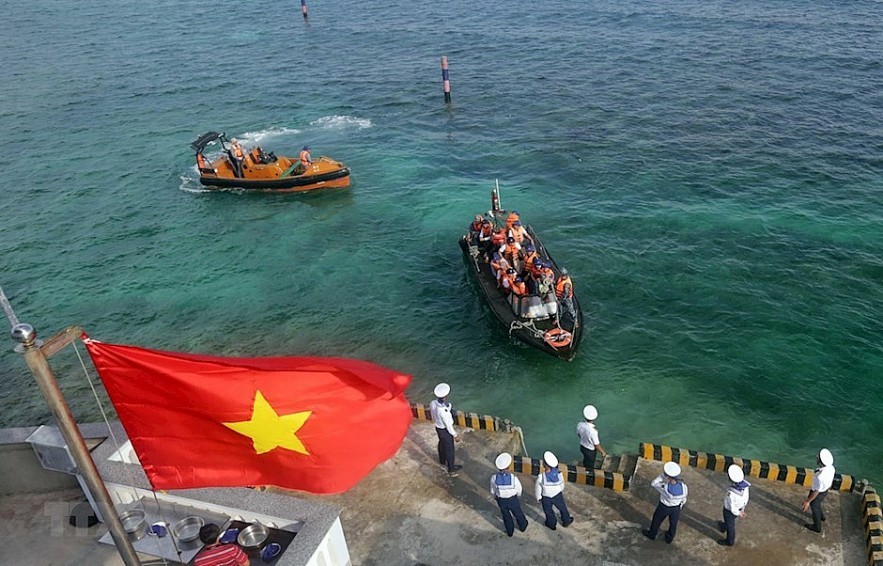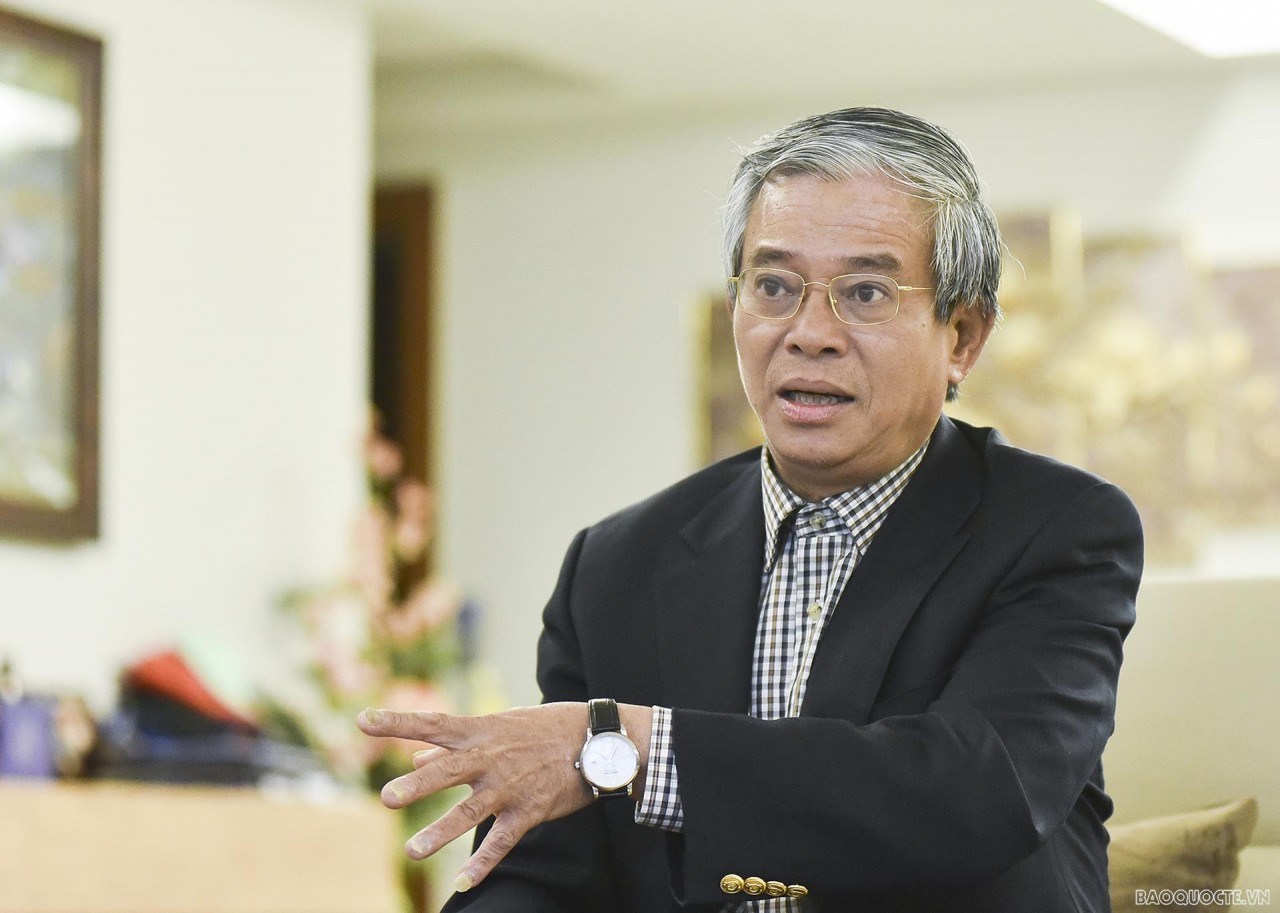Vietnam - Responsible Member of 1982 UNCLOS - DAV’s Director of South China Sea Institute
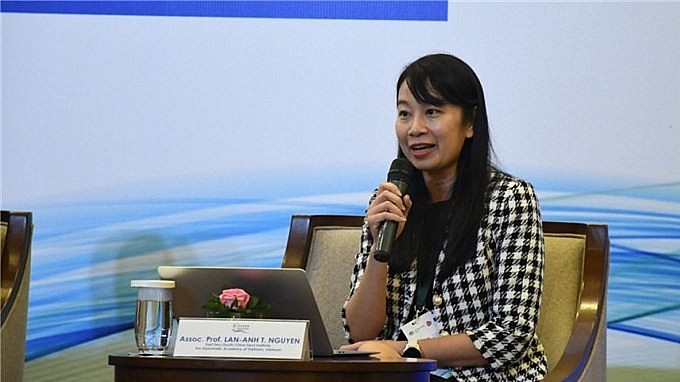 |
| The 1982 UNCLOS plays a key role in national sea economic development and lays the legal foundation for Vietnam to peacefully settle maritime disputes, according to Director Lan Anh. Picture: The World & Vietnam Report. |
Right after the unification of the country did Vietnam actively participate in the third United Nations Conference on the Law of the Sea. At the same time, Vietnam also issued a Declaration on the territorial sea, the contiguous zone, the exclusive economic zone and the continental shelf on May 12, 1977. Although published 5 years earlier, the content of Vietnam’s 1977 Declaration is completely consistent with the 1982 UNCLOS.
In 1994, Vietnam was the 63rd country to ratify the 1982 UNCLOS. The Resolution of Vietnam’s National Assembly clearly affirmed that by ratifying UNCLOS in 1982, Vietnam expresses its determination to join the international community in building a just legal order, encouraging development and cooperation at sea.
After that, Vietnam has issued many domestic legal documents to concretize the provisions of the Convention in such many fields as territorial boundaries, navigation, fishery, petrol, maritime environmental protection, etc. In particular, Vietnam promulgated the 2012 Law of the Sea of Vietnam with most of the contents compatible with the 1982 UNCLOS.
To fulfill its obligations under the 1982 UNCLOS, Vietnam submitted its extended continental shelf in the northern area to the Commission on the Limits of the Continental Shelf (CLCS) in 2009. In addition, Vietnam also cooperated with Malaysia to submit to the CLCS the boundary beyond the common extended continental shelf in the southern area of the South China Sea, where the two countries have overlapping and undefined continental shelves.
On the spirit of mutual equality, understanding and respect, and the respect for international law, especially the 1982 UNCLOS, Vietnam has successfully demarcated overlapping seas with its neighboring countries. Together with maritime delimitation, Vietnam and China also reached an agreement on fisheries cooperation in the Gulf of Tonkin, thereby establishing a joint fishing cooperation area and joint patrol to prevent crime and other illegal activities at sea.
Until now, maritime delimitation agreements between Vietnam and neighboring countries have been implemented in accordance with the principle of peaceful settlement of international disputes, in line with international law, especially the 1982 UNCLOS, contributing to peace, stability and development in bilateral relations. In addition to maritime delimitation, Vietnam has also reached an agreement with Cambodia on historic waters in the undefined sea area between the two countries. Vietnam and Malaysia have also established a joint oil and gas exploitation area in the area of undefined overlapping continental shelf.
In sea areas which is not yet demarcated, Vietnam always respects the sovereign rights and jurisdiction of coastal countries for the exclusive economic zone and continental shelf while promoting negotiations to find a basic and long-term solution. Vietnam supports the maintenance of the status quo, objecting to actions to complicate the situation and to use force or threaten to use force.
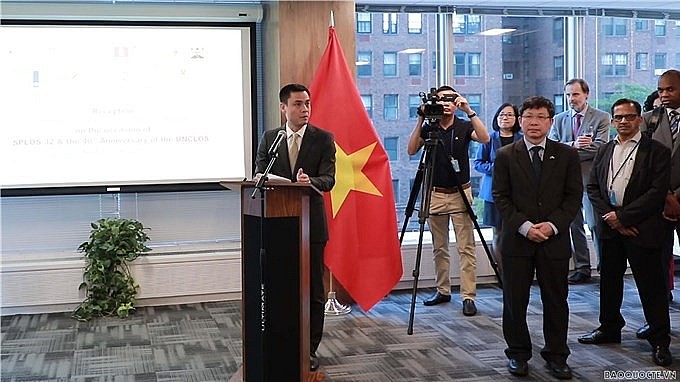 |
| Vietnam is the co-founder of the Friends of the 1982 UNCLOS. Picture: The World & Vietnam Report. |
Regarding with the two archipelagos of Hoang Sa (Paracels) and Truong Sa (Spratly), Vietnam affirms that it has enough historical and legal evidence to prove Vietnam's sovereignty over these two archipelagoes. On the other hand, Vietnam has determined the necessity to distinguish the issue of dispute settlement over the Hoang Sa and Truong Sa archipelagoes from the protection of the sea areas and continental shelf under Vietnam’s sovereignty, sovereign rights and on the principles and standards of the 1982 UNCLOS.
On that basis, Vietnam has signed and implemented the Declaration on the Conduct of Parties in the South China Sea (DOC), and is actively working with China and member states of the Association of Southeast Asian Nations (ASEAN) to negotiate a Code of Conduct in the South China Sea (COC).
On October 22, 2018, the Resolution of the 8th plenum of the 12th Vietnamese Communist Party's Central Committee on "Strategy for sustainable development of Vietnam's marine economy to 2030, with a vision to 2045" was issued, defining that "The sea is a component part of the sacred sovereignty of the Fatherland, a gateway for international exchanges, closely associated with the cause of national construction and defense".
In addition to the objectives of developing a blue sea economy, conserving biodiversity, preserving and promoting marine historical and cultural traditions, acquiring advanced and modern science and technology, using high-quality human resources, the Strategy defines a vision to 2045 that Vietnam will actively and responsibly participate in solving international and regional issues in the seas and oceans.
In this spirit, Vietnam and 11 countries founded the Friends of the 1982 UNCLOS in order to create an open and friendly forum for exchanging sea and ocean issues, thereby contributing to the full implementation of UNCLOS. Vietnam will continue to actively participate in multilateral forums and discuss emerging issues of the seas and oceans such as biodiversity conservation, climate change, non-traditional security challenge management like the COVID-19 pandemic, human trafficking, illegal migration, etc.
As a coastal state, and an active and responsible member of the international community, Vietnam has always affirmed that the 1982 UNCLOS plays a key role in national sea economic management and development. The 1982 UNCLOS functions as the basis for Vietnam to peacefully settle maritime disputes with neighboring countries, towards peaceful and sustainable management of the South China Sea.
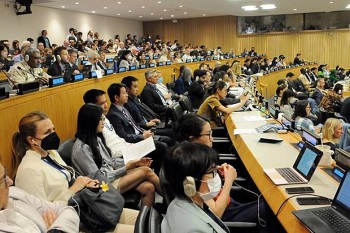 | Vietnam Support Negotiations for Instrument to Regulate Maritime Issues The marine biological diversity of areas beyond national jurisdiction (BBNJ) negotiation, discussing an international legally binding instrument under the United Nations Convention on the Law ... |
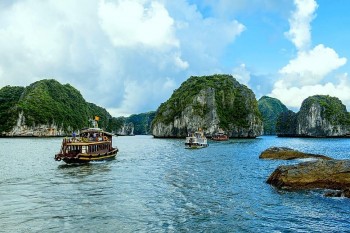 | Vietnam Respects and Upholds universal value of UN Convention on the Law of the Sea According to Assoc., PhD. Nguyen Thi Lan Anh, Diplomatic Academy of Vietnam, Vietnam always respects the universal value of the United Nations Convention on the ... |
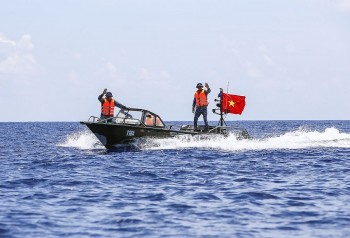 | UNCLOS 1982: Solid Legal Foundation for Vietnam to Protect National Interests On the 40th anniversary of the adoption of the United Nations Convention on the Law of the Sea (UNCLOS) 1982 and the 10th anniversary of ... |
In topics
 Seas and islands
Seas and islands
Vietnam Respects and Upholds universal value of UN Convention on the Law of the Sea
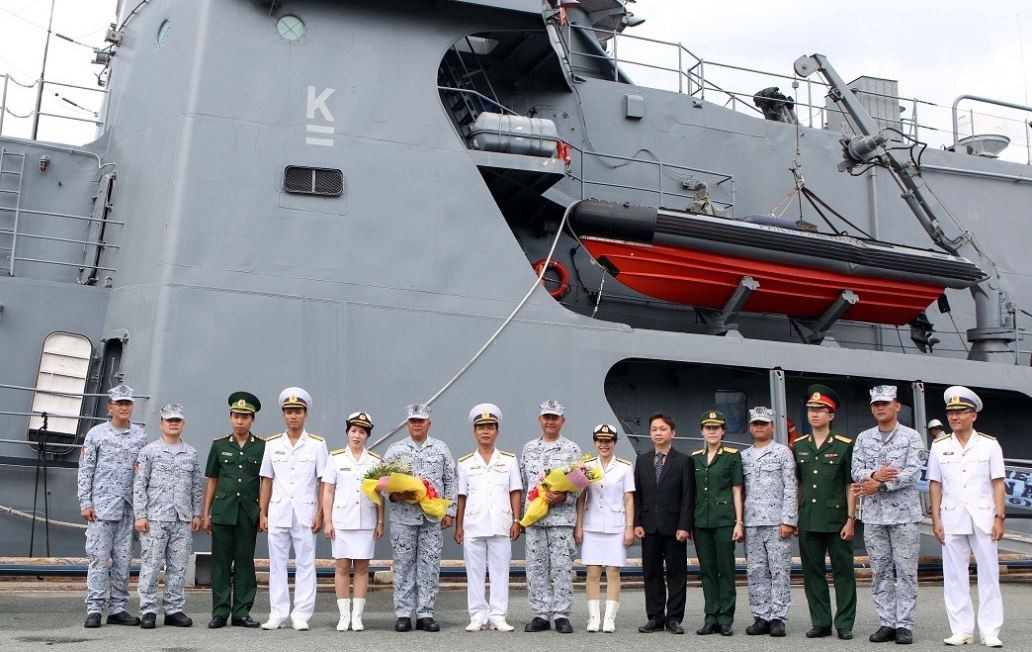 Seas and islands
Seas and islands
Vietnam-Philippines Cooperation in South China Sea: Strategic and Responsible Partnership
Recommended
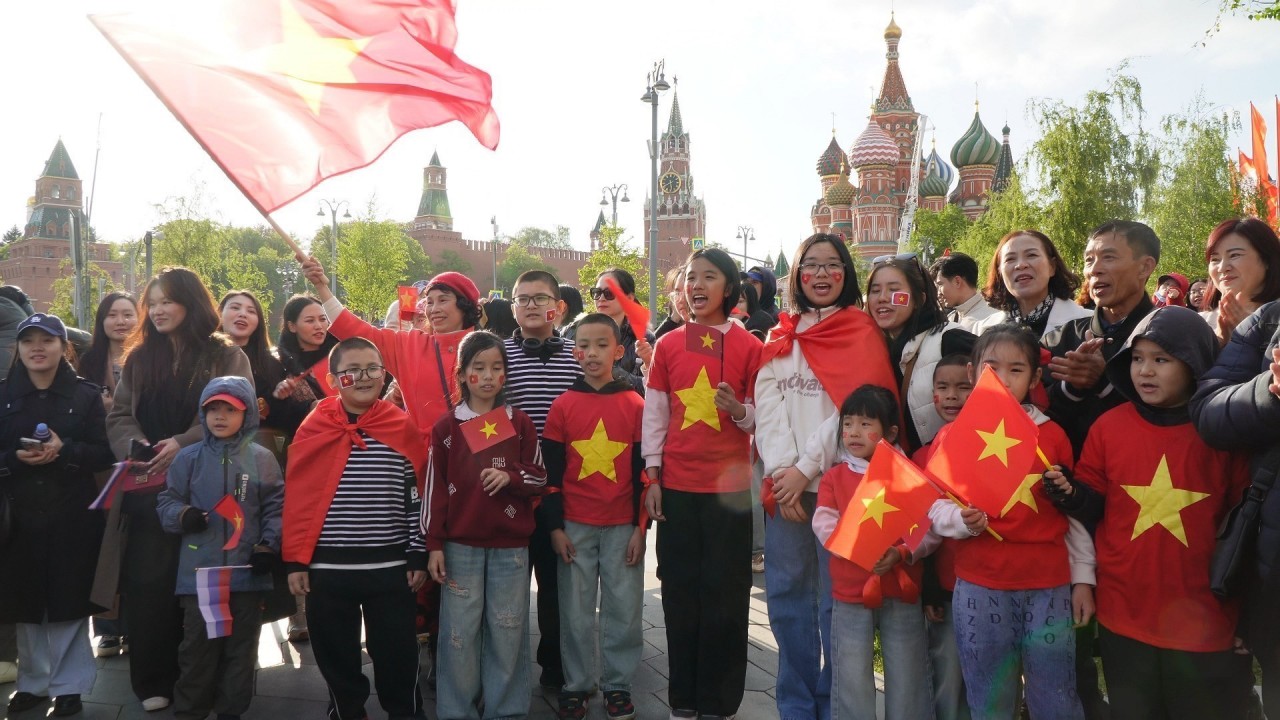 Focus
Focus
Overseas Vietnamese in Russia Welcome Vietnam People's Army Delegation at Red Square
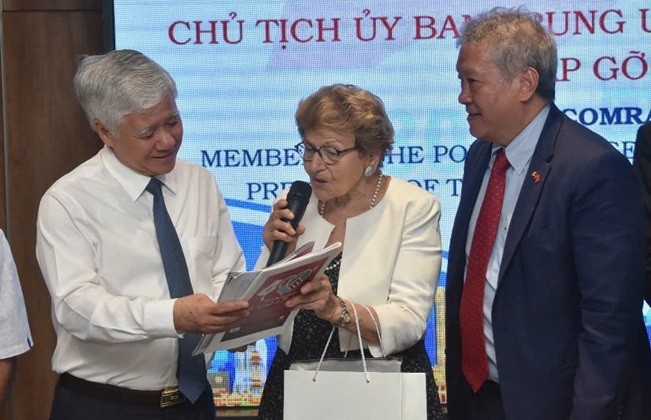 Friendship
Friendship
Vietnam Deeply Values and Remains Grateful for Unwavering Support from Intl Friends
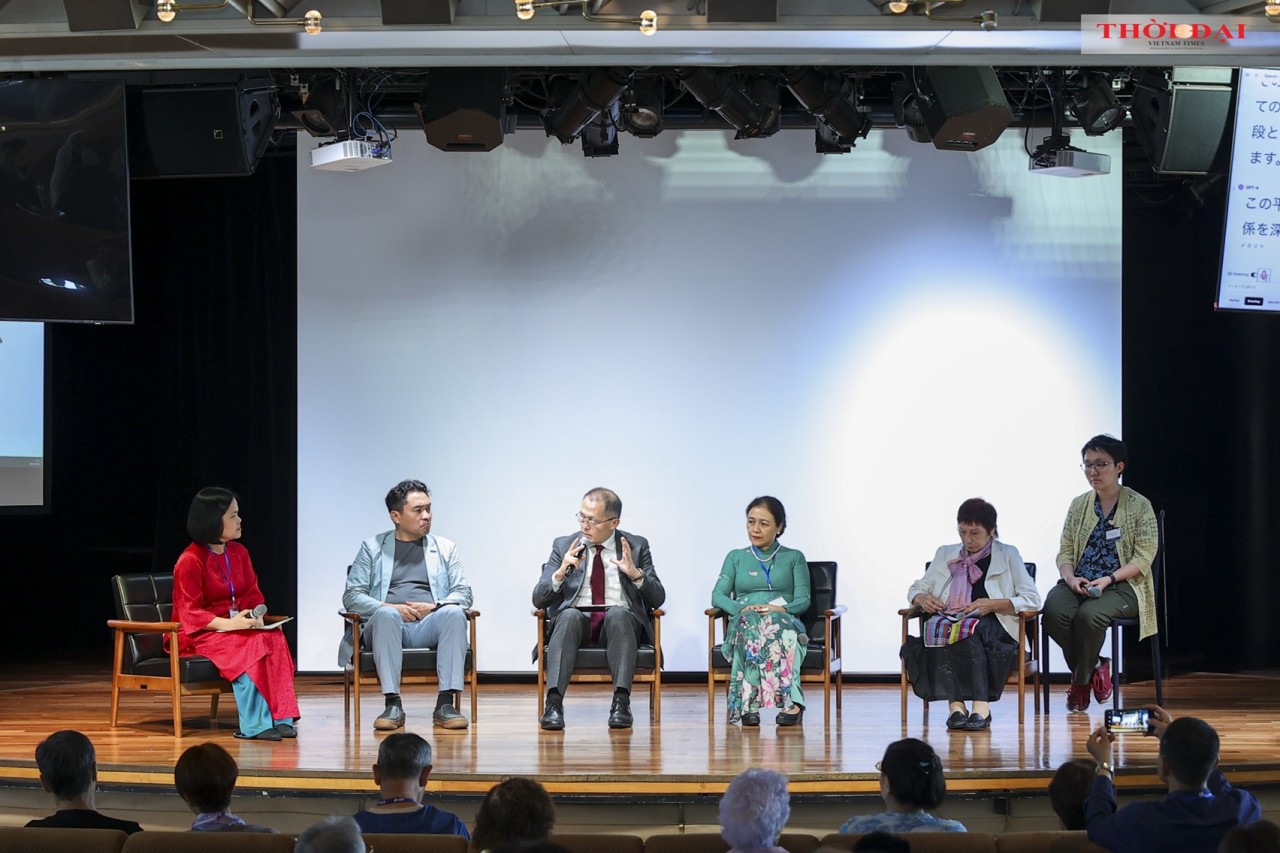 Focus
Focus
Global Community Join Hands to Write the Next Chapter of Peace
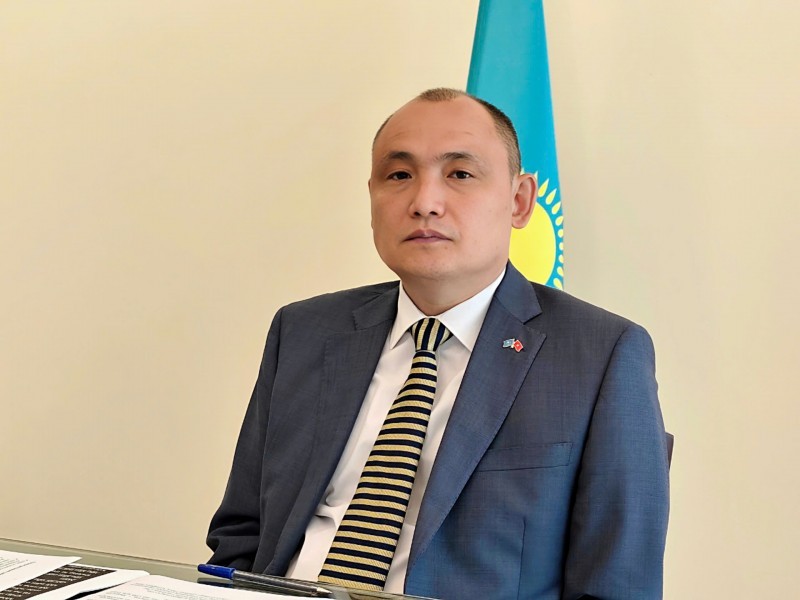 Focus
Focus
Vietnam will Earn Achievements in the Renovation Process
Popular article
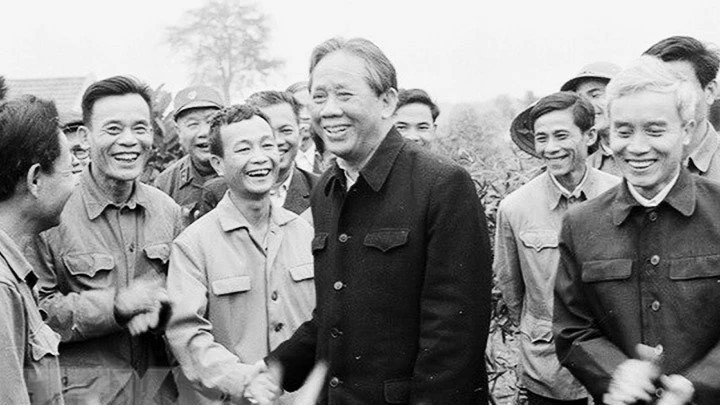 Focus
Focus
Letters That Carried Nation’s Destiny
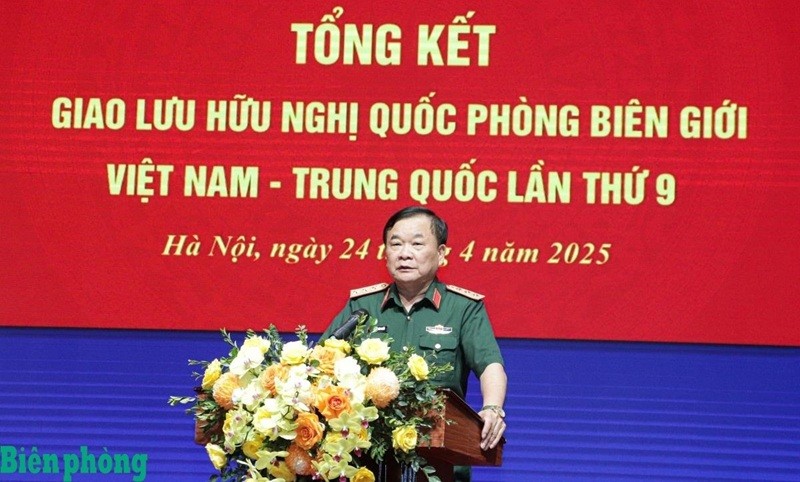 Focus
Focus
9th Vietnam-China Border Defense Exchange: Realizing High-level Common Perceptions
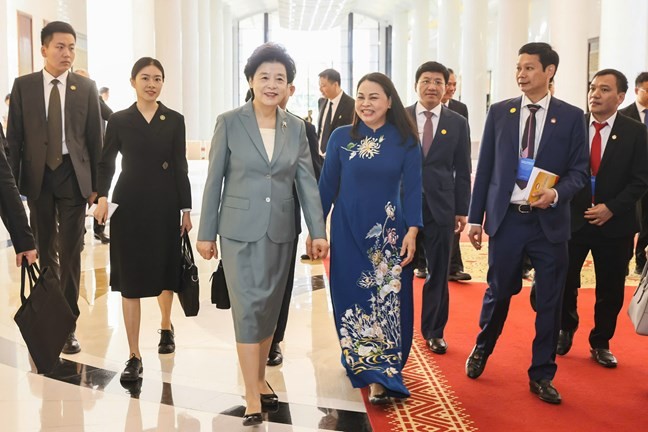 Focus
Focus
Vietnam and China Front Organizations Join Forces to Enhance Bilateral Ties
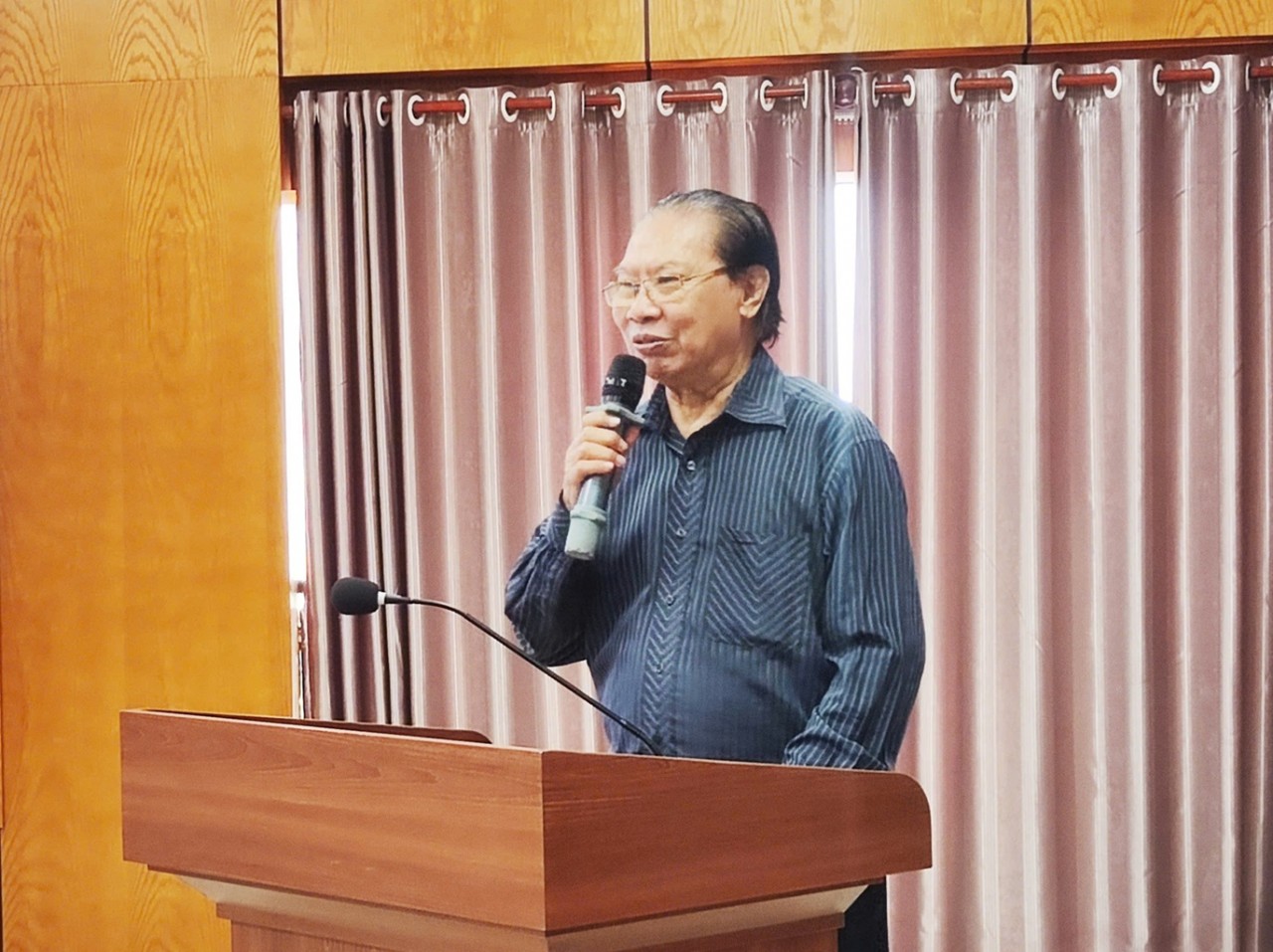 Focus
Focus




